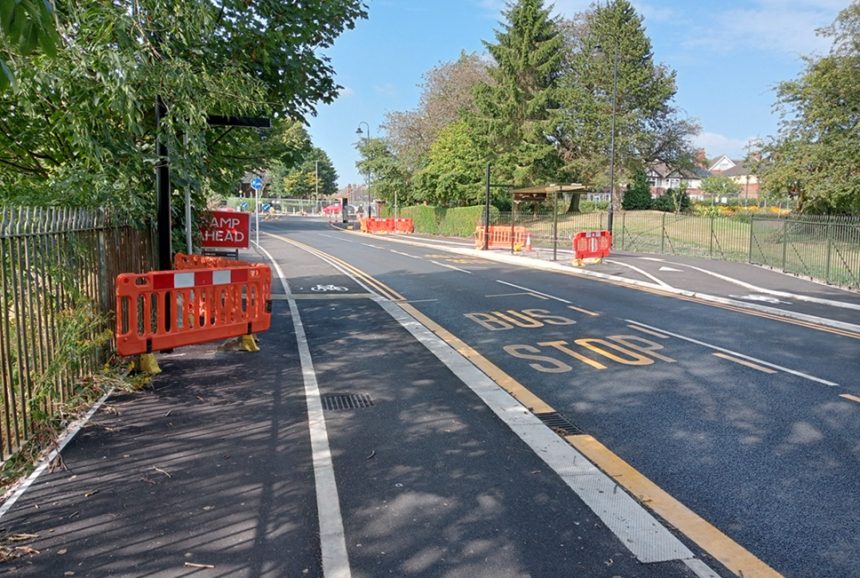Local transport authorities (LTAs) in England including London will see a pause on floating bus stops where users board and alight directly from or into a track shared with cyclists, Local Transport Minister Simon Lightwood has said.
He revealed that in a House of Commons committee debate on 3 July around the Bus Services (No.2) Bill in England and proposed amendments that have been tabled, which extensively capture floating bus stops.
Details of the pause are to be communicated to LTAs and it will apply to any such stops in the design phase. Floating bus stops of the alternative ‘bypass’ design, where a cycle lane does not pass between the stop and the kerb, are not within scope of the pause.
The Bus Services (No.2) Bill already contains consideration of floating bus stops. Clause 31 places a requirement upon the Secretary of State for Transport to issue guidance on their provision and design within three months of gaining royal assent.
LTAs will be required to have regard to that guidance when designing new floating bus stops or altering or removing existing ones. It is currently at a draft stage, Mr Lightwood told the committee.
The safety of floating bus stops has come under scrutiny in recent years, with disabled bus users including those with sight impairments cited as being particularly at a safety risk. The design where bus passengers board or alight from space shared with cyclists has generated particular controversy.
In addition to the pause on that specific type of floating bus stop, Mr Lightwood says that the Department for Transport is exploring support for LTAs to retrofit such existing sites, including via the next Consolidated Active Travel Fund, which will be launched shortly.
“Remediation activities will be explicitly included in the scope of [that] Fund for 2025-26,” he continues. “Local authorities are also encouraged to use a wide range of available funding, such as highways maintenance funding and new funding announced at the spending review, for any remediation works necessary to meet the new design guidance when it is published.”

The minister acknowledges how floating bus stop designs where bus passengers board and alight from and to an area shared with cyclists are “particularly problematic,” and the pause is focused on those designs.
“This government does not believe that a complete ban on all floating bus stops is appropriate, given the need to improve safety for cyclists and to enable more people to cycle,” he continues.
“The requirement to publish statutory guidance, to which local authorities are required to have regard, will enable the government to set out clearly what is expected of authorities in terms of making floating bus stops accessible.”
Mr Lightwood rejected a proposed new clause in the Bill that includes prohibition of LTAs in England from constructing any floating bus stops after the day on which it is passed. Such a step would raise “various practical issues” including those authorities with works underway not being able to complete them, he believes.
Read a transcript of the Bill committee session on Hansard here.


























